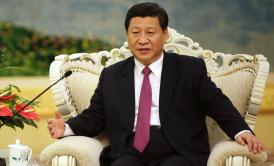The Chinese government accused Japan of stealing a group of islands in the East China Sea, as the mystery over the whereabouts of Beijing’s top leader-in-waiting Xi Jinping continues to grow. Japan on Tuesday confirmed that it had sealed a deal to buy the disputed islands, known as Senkaku in Japan and Diaoyu in China, for $26 million from the private owner who has been leasing them to the government, points out the Christian Science Monitor. In Japan, the move was seen as a way for the country to avoid the nationalist Tokyo governor from taking control of the islands and developing them. China has called the move illegal and sent two patrol ships to the islands while state-run media have been carrying unusually strong statements on the issue, notes the BBC.
Meanwhile, the mystery continues to grow over what is going on with China’s president-in-waiting Xi Jinping, who on Monday canceled his third meeting with a foreign dignitary in a month. He was last seen in public on September 1 and there’s lots of speculation that the country’s carefully planned leadership transition could be in trouble, notes the Washington Post. Yet Reuters hears word from sources that Xi, who is set to take over the presidency in March, was ill, possibly with a back injury suffered while swimming. Even though a back injury does sound like a convenient cover-up, some of China’s top leaders continued traveling outside Beijing, which likely wouldn’t happen if the country’s political elite was mired in crisis.
Some analysts say that Beijing’s unusually strong defense of China’s territorial claims on the islands could have something to do with deflecting attention away from what has been an unusually tumultuous leadership transition period, points out the New York Times. Even though it’s undeniable that there has long been tension between Japan and China, leaders in both countries might be tempted to take on a harder stance since they are coming to the end of their tenures, points out the Christian Science Monitor. The BBC’s Jonathan Marcus says the dispute “is as much about self-perception as anything else.”
Regarding, the missing Xi, everyone points out that due to the secretive Beijing ways, it’s impossible to know whether the fact that he has apparently been missing in action is a scandal or nothing at all. Although insiders certainly would have an interest in playing down problems, analysts are quick to point out that the health of leaders is incredibly sensitive and it would be misguided to read too much into the obfuscation as it might all just be an extreme example of Beijing bureaucracy in action, points out the Guardian.
What is undeniable is that this has been an incredibly rocky year for China’s political system, details McClatchy.
